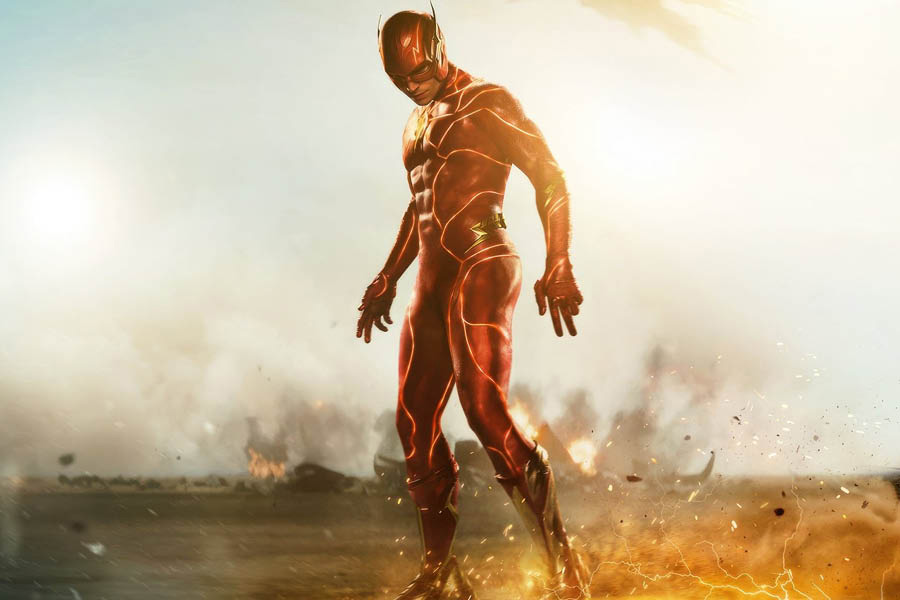Sometimes film posters can be misleading and the hype created around a movie even more so. DCEU’s The Flash is guilty on both counts. While the former works in its favour, because a standalone film about the scarlet speedster should be about the scarlet speedster, the latter is what fails to elevate the film from sometimes fun to game-changing. Because despite the hype and the anticipation, The Flash changes nothing. And that in the DCEU fare that has been dished out is definitely not a good thing.
First things first, The Flash is, despite the posters, very much a Barry Allen movie. Ezra Miller actually does a good job as both the present Barry Allen and past Barry Allen, where the mantle of the annoying jokester has been passed on to past Barry as present Barry slips nicely into the role of a mentor. You just have to be able to detach the actor from all the off-screen accusations levelled against them, which, admittedly, is difficult to do. Miller does well to differentiate the two both in terms of dialogue delivery and body language.
Directed by Andy Muschietti, The Flash is influenced by the comic book storyline of Flashpoint and sees present-day Barry travel back in time to save his mother from dying and his father from going to jail. He is warned by Ben Affleck’s Bruce Wayne/ Batman of the ripple effects his travelling back in time may cause, but driven by grief he ignores the warning and runs fast enough to enter the ‘speed force’ and go back to the day his mother was killed.
He successfully prevents the event from occurring but on his way back to the present is pushed out of the speed force by an unknown entity trapping him in an alternate past where his parents are alive and Barry is 18. In making sure the past Barry receives his power, present Barry loses his powers and is forced to mentor past Barry — this is The Flash’s origin story of sorts — so that they can fight General Zod (Michael Shannon) who has just appeared on Earth.
Without his powers, and on realising that in this timeline there are no metahumans/ demigods to protect Earth, the Barrys seek out Bruce Wayne/Batman, only it is not Ben Affleck but (yay!) Michael Keaton, who they convince to come out of retirement. Together they go looking for the Kryptonian Kal-El/ Clark Kent/ Superman, only to find his cousin Kara Zor-El (Sasha Calle) instead.
For all those who have hated Ben Affleck’s Batman with a passion, Keaton is a balm for sore spots even with outdated gadgets (smoke bombs!), non-killing technology (thank you!), iconic imagery (the batwing against the moon!) and fan-favourite dialogues (it does get nuts!).
A lot of DCEU-trademark and too-much-going-on CGI battles later (we can’t divulge more without giving away spoilers), present Barry realises that he has to put things back to how they were before, including letting his mother die. As a result everything is back to how it was, except for a few minor changes — one that is of no major consequence, and the other better not be sticking once DC has been de-Snyderised by James Gunn (please god not that bat suit nor that Batman!). So much for all the hype about how Flashpoint might change the geography of the DCU!
All in all, The Flash proves to be entertaining in bits — the Barrys together are a riot — with some noteworthy action set-pieces (okay fine, it was one, right at the beginning and involved present Barry saving a bunch of newborns and a dog), a not surprisingly cool Batman (for a change), commendable performances by Miller and Keaton, and some spaghetti bolognese. But in the end, the movie goes nowhere with the status quo maintained, except for the very worrying little change in the present timeline. And no, there is no point in waiting for the post-credit scene. It, like the rest of the movie, adds nothing and changes nothing either.











